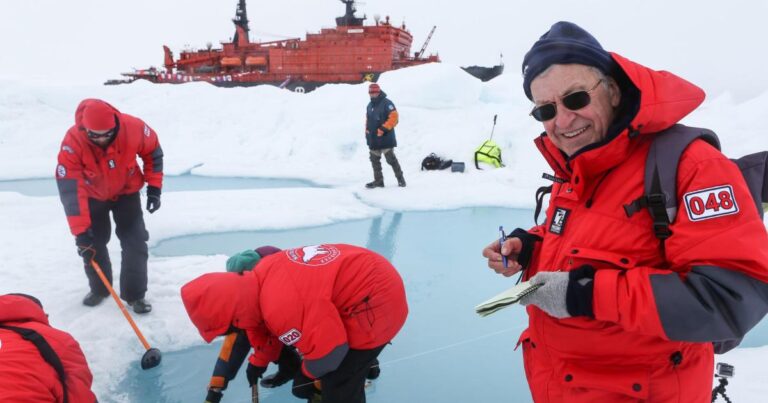Greenwashing Arctic tourism?
A risk associated with science tourism initiatives is the potential for greenwashing of tourism activities by adopting citizen science initiatives.
Lammers and others highlighted that polar tourism operators have been criticised for misusing science and promoting a positive narrative to justify the growth of tourism in the polar regions, despite the climate and environmental impacts.
In assessing the sustainability impacts of the expedition cruises in question, the researchers found that sharing vessels and facilities does not necessarily translate into energy efficiency or other sustainability benefits.
“For example, more complex activities on board may require longer sea times or more frequent use of Zodiacs to accommodate different groups. During the expeditions, many scientists have had to accept trade-offs between the scientific value of the expedition and other benefits, such as networking opportunities, media attention for their science, and the polar cruise experience itself.”
Researcher Hutton told HNN that when it comes to cruise tourism, he would say that just about anything related to science tourism or environmental conservation is greenwashing.
“There is an element of being able to educate passengers. Even if you can reach one person, and you really can, it’s always worth doing so. But is it worth putting 200 people on a cruise ship through the Northwest Passage just to reach one person? We could have found another way,” the researcher said, adding:
“We know how expensive these cruises are, but the target demographic is a high spender, so if you can reach someone there, it has a big impact compared to reaching someone who spends very little. The behavioral change per capita is very large, but it’s not enough to offset the negative impacts of cruise tourism.”
Academic freedom
In a comment to High North News, researcher Machiel Lammers stressed the importance of academic freedom in science tourism. He said that the positive impact of science tourism depends on the different forms and practices involved.
“Whether these forms and practices are desirable or amount to greenwashing depends on their characteristics. If tourism seeks to connect with science (or vice versa), it needs to ensure that actual meaningful science is possible (taking into account some time and space), that all necessary permits are obtained, that no negative impacts are made on the environment (sampling, access to wildlife), and that academic freedom and independence are guaranteed,” Lammers says.
“The most admirable tourism operators are those that are willing to allow critical scientific research to be conducted, that are willing to reflect critically on their own operations based on the scientific research that is done, and that allow researchers to report freely on the scientific research. Many forms of citizen science in tourism will involve compromises on one or the other of these requirements,” he concludes.

